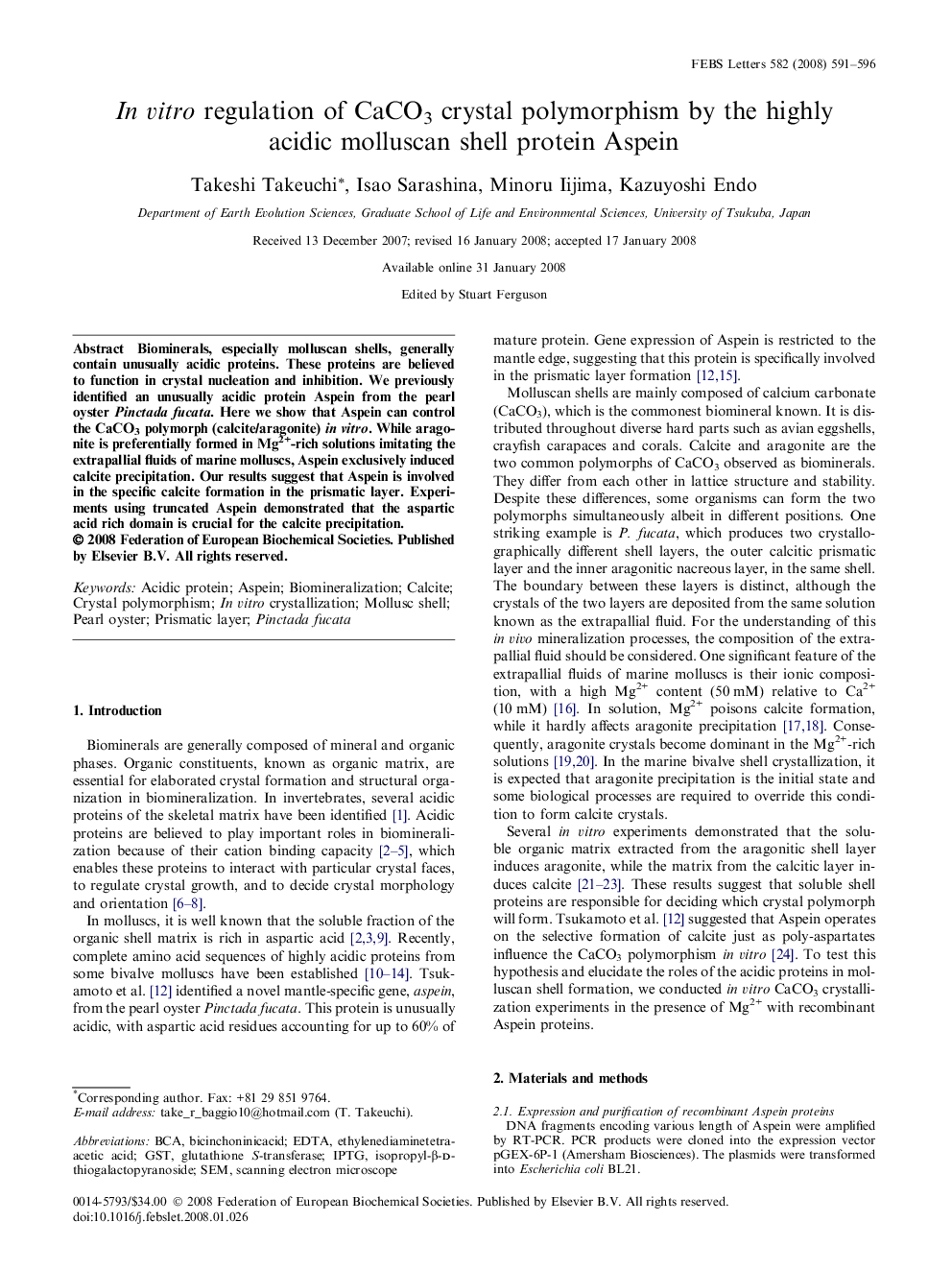| Article ID | Journal | Published Year | Pages | File Type |
|---|---|---|---|---|
| 2051149 | FEBS Letters | 2008 | 6 Pages |
Abstract
Biominerals, especially molluscan shells, generally contain unusually acidic proteins. These proteins are believed to function in crystal nucleation and inhibition. We previously identified an unusually acidic protein Aspein from the pearl oyster Pinctada fucata. Here we show that Aspein can control the CaCO3 polymorph (calcite/aragonite) in vitro. While aragonite is preferentially formed in Mg2+-rich solutions imitating the extrapallial fluids of marine molluscs, Aspein exclusively induced calcite precipitation. Our results suggest that Aspein is involved in the specific calcite formation in the prismatic layer. Experiments using truncated Aspein demonstrated that the aspartic acid rich domain is crucial for the calcite precipitation.
Keywords
Related Topics
Life Sciences
Agricultural and Biological Sciences
Plant Science
Authors
Takeshi Takeuchi, Isao Sarashina, Minoru Iijima, Kazuyoshi Endo,
